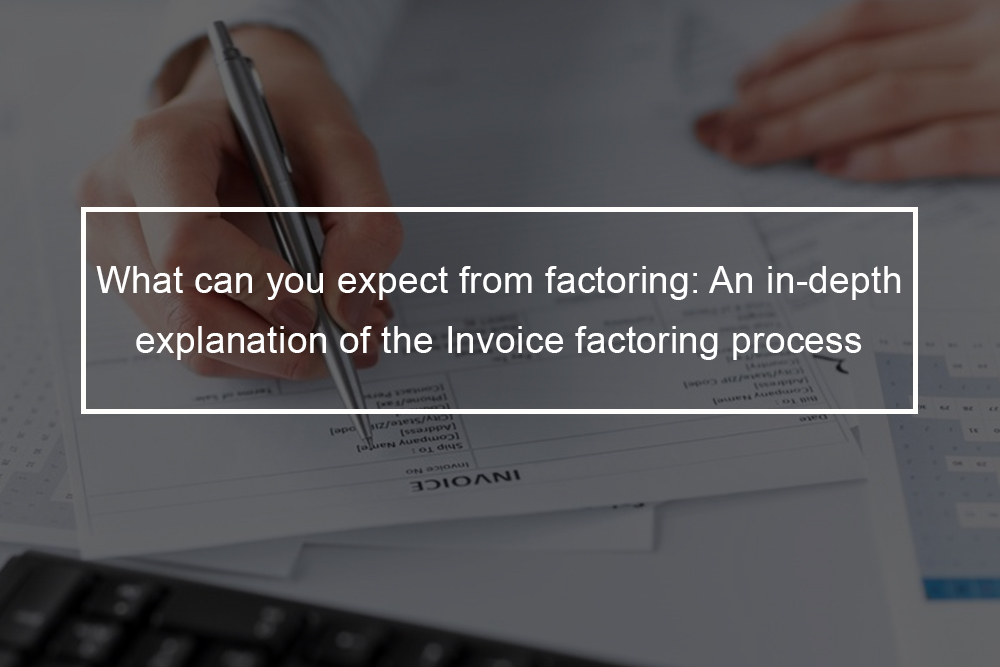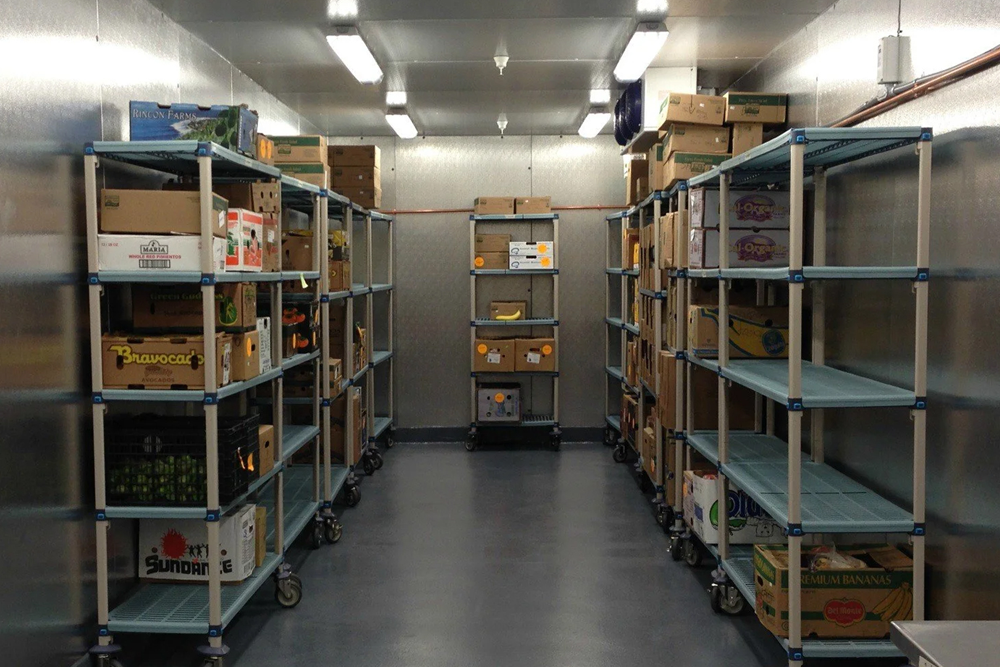Are you wondering what invoice factoring is and how it can help your business financial needs? We have put together a concise and straightforward guide, so you don’t have to waste your time surfing the web looking for answers.
What is invoice factoring?
In simple words, invoice factoring is a kind of invoice finance where you “sell” some or all of your business’s outstanding invoices to a third party as a way of boosting your revenue stability and cash flow. Typically, a factoring company will instantly pay you most of the invoiced amount and then collect payment directly from your clients. There are advantages and disadvantages to invoice factoring, which we will outline in this article. Invoice factoring is also called debt factoring or accounts receivable factoring.
How invoice factoring works?
The procedure of factoring your receivables is comparatively simple. It is structured through the sale of your invoices to a factoring company. Transactions settle after the factor receives a payment from your client. Your client pays their invoices on their usual terms of thirty to sixty days. Companies that utilize factoring often fund their invoices regularly. It improves liquidity, offers an ongoing source of financing, and offers a platform for growth.
The majority of factoring companies purchase your invoices in two installments. The first installment is known as the advance and funds about 80-percent of the invoice’s value. Then the advance is deposited in your bank account after you submit an invoice. Remember that the advance percentage varies depending on risk profile and industry and can range from 70-percent to 98-percent. The average advance is about 80-percent. The remaining 20-percent, minus the factoring fee, is paid after your client pays the full invoice. The money will be deposited into your bank account as a second installment. This payment settles the transaction.
The invoice factoring process
In a nutshell, the invoice factoring process comprises of four main elements:
- Your business
- Your business customers (debtors)
- One or more accounts receivable (invoices)
- A factoring company (the factor)
The factoring process involves five steps
Step 1: Invoices into cash
Your office offers services or goods to creditworthy clients. It takes them thirty-ninety days to pay the invoice. You need to get the payment instantly to keep cash flow positive.
- Your business sells the unpaid invoices to a factoring company and gets instant payment up to 90-ninety with the balance coming once your clients pay in full.
- Once a factoring company receives your application, the factor reviews it within one business day. An account representative contacts your business to discuss your financial needs and goals.
Step 2: Verification of invoices
The factoring company validates the invoices and finishes a due diligence background check. Note, the primary concern is your client’s ability to pay. The due diligence operation takes about three-five business days to complete. Due diligence work comprises checking for Dun & Bradstreet search, judgment search, Uniform Commercial Code liens, tax lien search, and various other corporate searches.
- Upon acceptance, the factoring company sends a proposal outlining their rates and terms.
- Upon your business agreement, the factoring company overnights the legal documentation.
- Your business submits correct invoices on a delivered service or product.
- You will then fill out the assignment schedule; it lists the batch of invoices.
- You can see the invoice schedule and payments in your account within twenty-four hours per day.
Step 3: Get cash the same day
After the searches are finalized, financing can start instantly. After that, immediately the factoring company receives and validates your invoices, you will receive financing within twenty-four hours.
- Invoices are validated, and money is immediately advanced through wire transfer, up to 90-percent of the gross invoice amount.
- Your customers make payment of the invoices directly to the factoring company.
Step 4: The balance is received
Your clients pay in full directly to the factoring company following the terms of the invoice.
- Following your discretion, the factor can send money through check or wire transfer (overnighted or regular mail).
- Businesses get the funds in advance after verification of the invoices. Factors finalize this the same day they receive the invoices.
- After the factor receives the payment, the factor provides the remaining amount, minus their fee. The final factoring rate and cost don’t have to be confusing.
Step 5: Repeat the process
Repeat the process when your business has new invoices for continued, unlimited working capital!
Additional notes to remember when factoring invoices.
- Ensure you send invoices with their purchase order ( that is if it is applicable) and proof of performance or delivery. There must be the performance of a service or a delivery of goods.
- You might submit all of the clients you would like to factor so they can be credit-approved for financing. Include the phone number and contact name.
- Credit approval for new accounts is simple. Moreover, it is recommended to call in advance for credit checks before providing services or shipping goods to new accounts. All that is needed is the name and address of the new customer.
Does my business qualify for invoice factoring?
Qualifying for invoice factoring is much simpler than qualifying for other kinds of business financing. The significant prerequisites are:
Your clients must have a good commercial credit score
This is the most vital requirement to be eligible for factoring. The transaction is made by leveraging the credit strength of your clients to your advantage.
Your invoices should be free of liens
Factoring companies offer funding by buying the financial rights to your invoices. Consequently, your invoices must not have liens. Factors will purchase only invoices for which they have a first-position UCC.
Ensure your margins are above 15-percent
It is appropriate to utilize this financing option if your gross profit margins are at least 15-percent. If you are not positive about your margins, talk to your CPA.
You should have good invoicing practices
Having good invoicing practices is also a vital requirement for funding your receivables. Your invoices should have well-defined payment terms and should have all the necessary backups to promote smooth collections.
Tax issues should be manageable
A big benefit of receivables factoring over other options (such as business loans) is that it is accessible to companies with tax issues. Nonetheless, these tax challenges must be surmountable and manageable with financing. In such cases, a payment plan with an important tax authority might be required.
You should not have open bankruptcies
The business and the main owners should not have an active bankruptcy. Past bankruptcies must be properly discharged.
Is invoice factoring right for me?
Even though easy to get, invoice factoring is not for every business. It is designed to solve a particular type of financial issue. You can evaluate if factoring will assist you by asking yourself the following three questions. If any (or all) of the following statements are true, invoice factoring is possibly the right solution for your business:
If clients paid quickly, your financial issues would go away
Most businesses that fund their receivables do so since they have cash flow issues. These problems are always because of slow-paying clients. If getting paid sooner (via financing) would get rid of the majority of your financial issues, there is a good possibility that invoice factoring is right for you.
Clients keep asking for net-30 to net-60 payment terms; however, you can not offer them
Midsize and small companies usually experience challenges when their larger clients demand thirty- to sixty-day payment terms. Their monetary reserves are sufficient enough to pay company expenses while also waiting for clients’ payments. Typically this puts them in a bind. They can either offer terms or turn away customers while getting into a financial predicament.
Your business has turned away orders since you could not afford to fulfill them
Generally, there are times when a business must turn new orders away since it does not have the resources to service them. This situation leaves customers with no other option but to go to a competitor. Evidently, you want to avoid this scenario at all costs. This issue is common for businesses that have growing payrolls (e.g., staffing firms, consulting companies, etc.)
Advantages & disadvantages of invoice factoring
Some advantages associated with factoring financing include that there is typically no minimum credit score qualification. It is a fast way to get cash, and experts will manage your accounts receivables (A/R). Consequently, the factoring company might have direct contact with your clients, selling your invoices relinquishes a degree of control, and invoice factoring can be costly.
The pros of invoice factoring
- Your customers’ creditworthiness is considered: Typically, with invoice factoring, your clients’ creditworthiness is more essential than yours. This indicates you are able to get funding even if you have bad credit.
- You work with accounts receivable experts: A potential benefit of invoice factoring is the ability to establish relationships with A/R management experts. As this is what your invoice factoring company does every day, it has good accounts receivable management methods.
- It offers a quick source of cash: Invoice factoring offers a fast source of cash. You can get accepted within two to seven days and financed in one to three days. However, there are other fast business loans you could consider. It is always good to weigh your funding solutions.
The disadvantages of invoice factoring
- The company factor might communicate with your clients: You can anticipate your invoice factoring company to contact your clients, and the level of interaction will vary based on the provider. If your company is in a field where invoice factoring is common, this might not be an issue.
- The cost is costly: With invoice factoring, the interest rates are higher than with other kinds of financing, and there is also the potential for additional charges. It is important to read your contract to ensure you understand the total costs engaged with this funding form.
- Your invoices will be sold: A feature of invoice factoring is that you are assigning, or selling, your invoices to the factoring company. Whereas this gives you an immediate source of money, you are also giving up some control and will expose you to blanket UCC (Uniform Commercial Code) filing.
Typically, invoice factoring can seem harder than getting a loan from a bank. Nonetheless, what makes invoice factoring financing sophisticated is also what makes it appealing. You can borrow money depending on your unpaid customer invoices to meet your instant cash flow needs. As far as your clients pay promptly, the cost of factoring is more affordable than many other short-term business loan alternatives.












